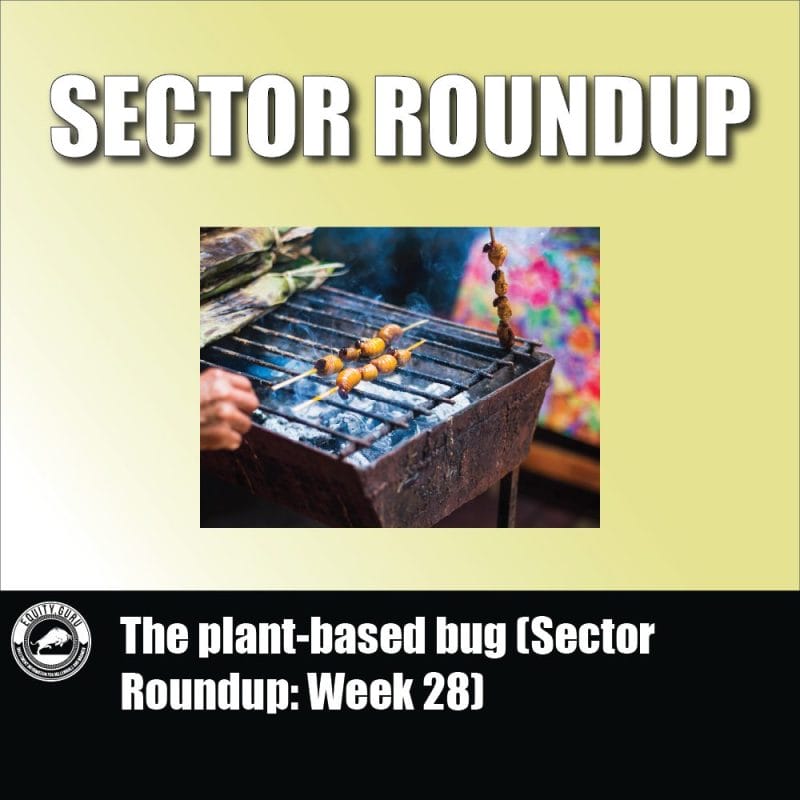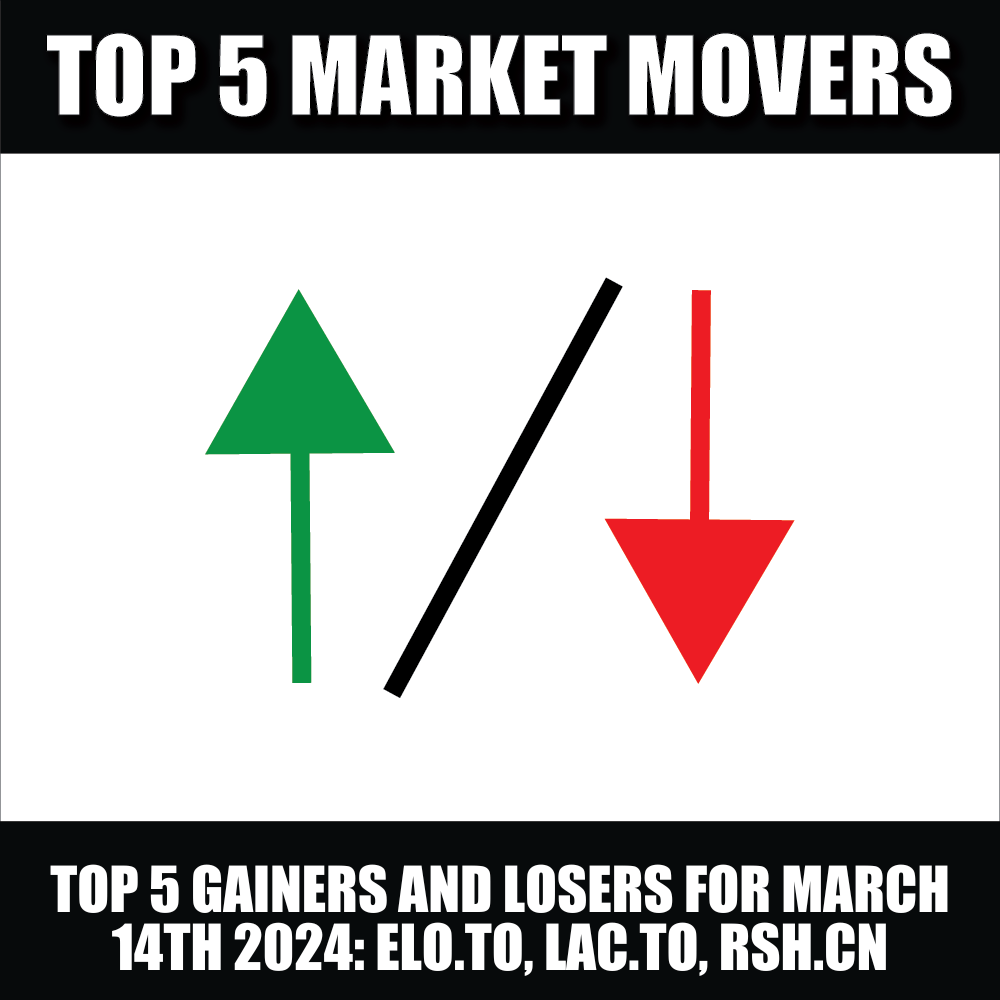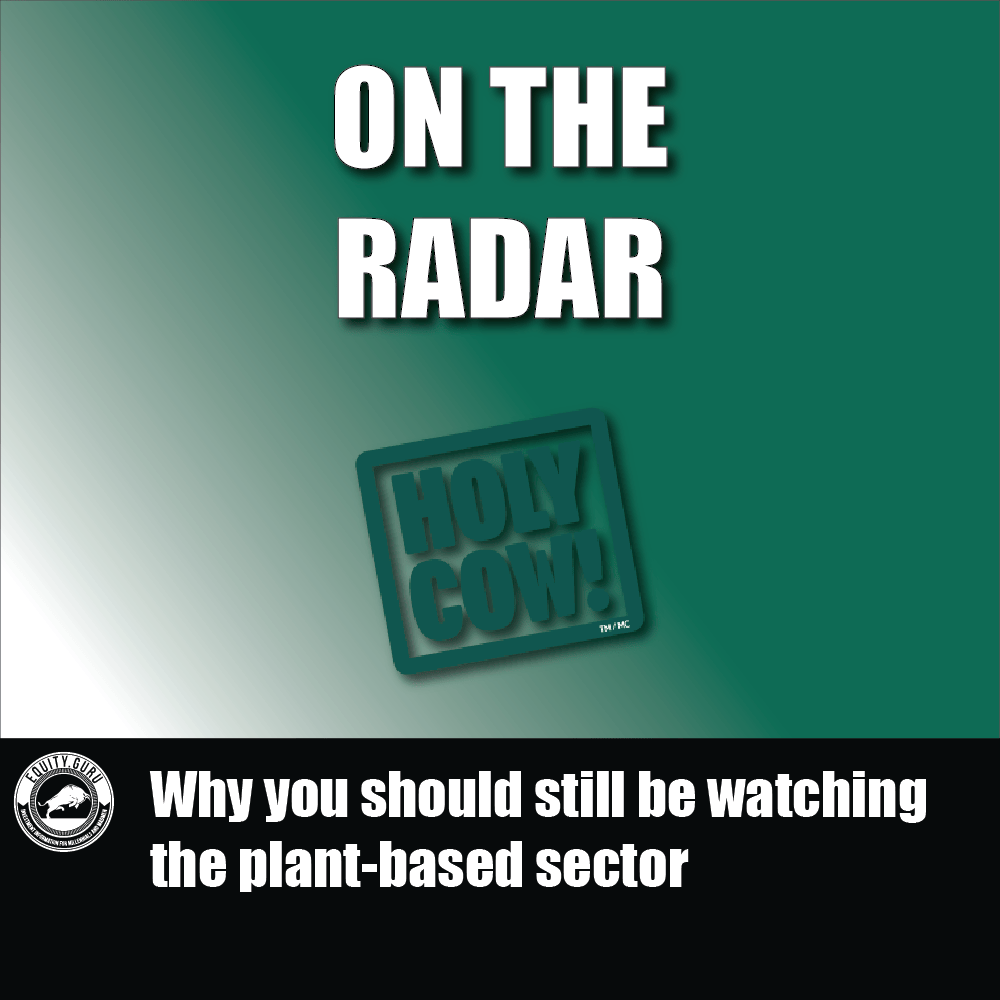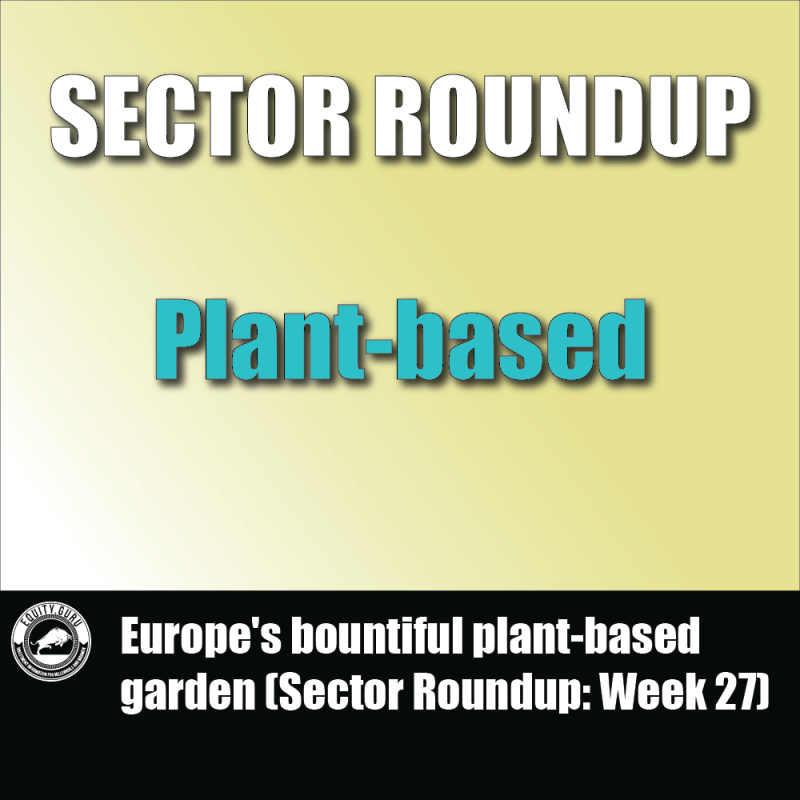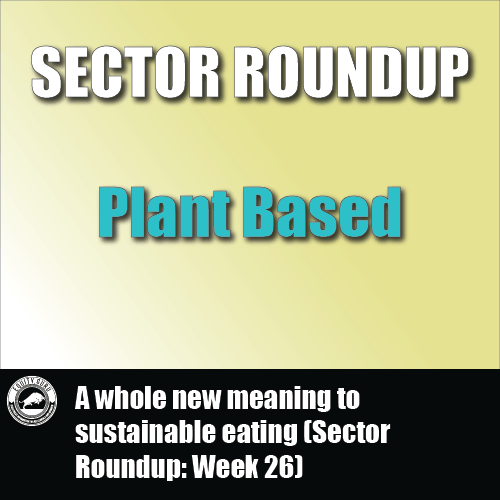Crawling in My Skin
Welcome to another plant-based sector roundup. On January 21, 2022, UN Secretary-General Antonio Guterres addressed the UN General Assembly (UNGA), outlining three crises in need of better global governance, with Climate change among these crises. According to Guterres, the goal of holding global warming to 1.5 degrees Celcius will either be won or lost in this decade. To combat this, Guterres provided various solutions.
One of these solutions included an unprecedented investment surge in renewable energy infrastructure, tripling to USD$5 trillion annually by 2030. The harsh reality is that investment in renewable energy needs to triple by the end of the decade in order to effectively combat climate change, according to the Internation Energy Agency (IEA). We are running out of options.
We have dug ourselves a deep grave. If we hope to eventually climb out, we are going to need to make some drastic changes. However, it isn’t exactly feasible for most people to start plastering the side of their houses with solar panels. That being said, there is an alternative for curbing climate change, but you might not like it. I definitely don’t.
At the 2021 Food Summit, Guterres’s special envoy, Agnes Kalibata, suggested that insect farming could provide an “elegant solution” to climate change, biodiversity loss, hunger, and malnutrition. With this in mind, eating insects isn’t an entirely new concept. According to the Food and Agriculture Organization (FAO) of the United Nations (UN), more than 2 billion people worldwide eat insects as part of a traditional diet, also known as entomophagy.
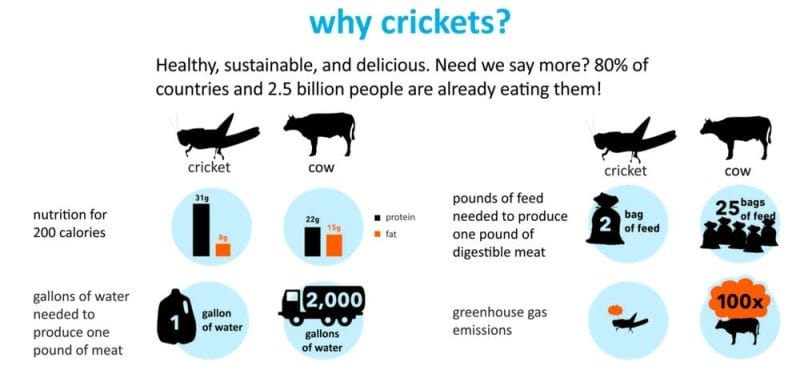
Most people who eat insects traditionally reside in Africa, Latin America, and Asia. On the contrary, the concept of eating insects is foreign to a vast majority of those living in Europe and North America, myself included. That’s not to say the option isn’t available to us. In fact, Loblaws, one of Canada’s largest nationwide grocery chains, has been stocking locally produced cricket powder since 2018.
In order to serve a growing population that is expected to reach almost 10 billion by 2050, food production needs to increase by approximately 70%. To be blunt, there is not enough land to support the expansion of conventional livestock farming. As a result, we now have to turn to more sustainable practices, including insect farming. Thankfully, there’s a silver lining. According to Barclays, the insect protein market could be worth roughly $8 billion by 2030, up from less than $1 billion in 2020.
That’s still a fraction of the beef market’s value of $300.6 billion in 2017. However, the insect protein market’s growth is undeniable, presenting a potential investment opportunity for those who are bold enough. Personally, I think I will stick to eating plant-based options like Beyond Meat. Speaking of plant-based, let’s talk about what has been happening in the sector.
Beyond Meat Inc.
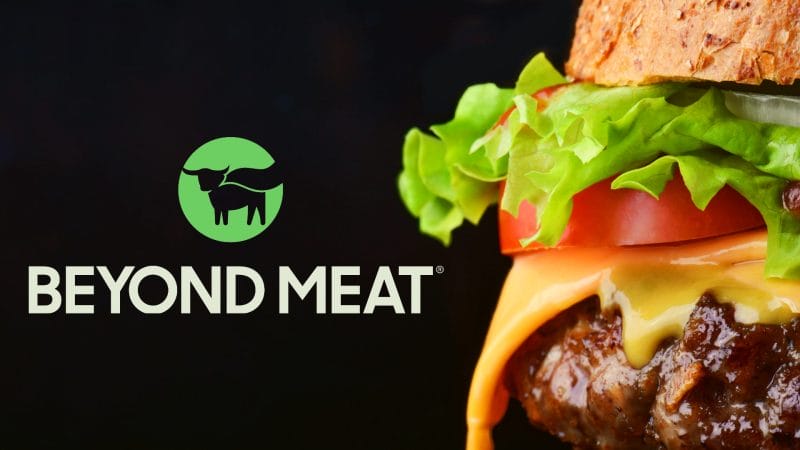
- $2.355B Market Capitalization (April 28, 2022)
Beyond Meat Inc. (BYND.Q) is an industry leader in plant-based protein, offering a portfolio of products made from simple ingredients without GMOs, bioengineered ingredients, hormones, antibiotics, or cholesterol. Beyond Meat Inc. and Impossible Foods Inc. were pioneers of the plant-based sector, ushering in an era of sustainable, ethically sourced, delicious meat alternatives.
Beyond Meat has also done its part to lower the environmental impact associated with the production of the Company’s Beyond Burger. According to a study published by the Center for Sustainable Systems, the production of the Beyond Burger generates 90% less greenhouse gas emissions, requires 46% less energy, has >99% less impact on water scarcity, and 93% less impact on land use than a ¼ pound of U.S. beef.
Latest News
Beyond Meat’s share price in the last 24 hours has been about as volatile as my ex-girlfriend’s emotions. In terms of official press releases, on April 27, 2022, Beyond Meat announced that it will report financial results for the first quarter ended April 2, 2022, on May 11, 2022, after market close. The Company also announced that it will host a conference call to discuss these results at 5:00 PM EST, which can be accessed via call at 412-317-6026.
Now, for the fun news. Following a report on Wednesday that McDonald’s had added the McPlant burger to its menu permanently, Beyond Meat saw its shares climb almost 34%. The original report came from the website Fast Company, a monthly American business magazine, which reported that the McPlant would become a permanent McDonald’s menu item, according to a McDonald’s spokesperson. Unfortunately, this is not the case. Fast Company has since corrected itself, stating:
Correction: A previous version of this article described the McPlant burger as a “permanent” menu item; a McDonald’s spokesperson clarifies that it is a “core menu item” available in local markets depending on consumer demand. The timing of a test in Canada was also incorrect. We regret the error.
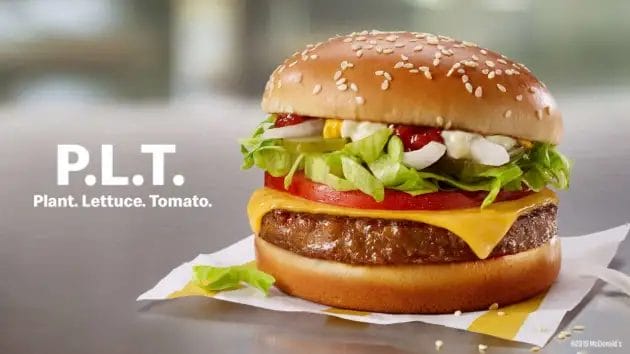
While this is a bit of a bummer, I can’t say I am too surprised. In some areas of the US, the McPlant has underperformed, and I can see why. Personally, if I wanted to eat plant-based, I wouldn’t be going to Mcdonald’s. At the end of the day, I see the McPlant as a novelty item that I would like to try at least once, and I am sure a lot of Americans share this same sentiment.
On to happier news, on April 21, 2022, Beyond Meat announced that it would be taking over Woodbine Beach Trail in Toronto for Earth Day, from April 22, 2022, from 2 PM to 7 PM. The Company created a custom “ride-thru” offering free Beyond Burgers to customers traveling along the Beach. Whether you were walking, biking, or skating, Beyond Meat’s Beach adventure ended with a free burger. Not bad.
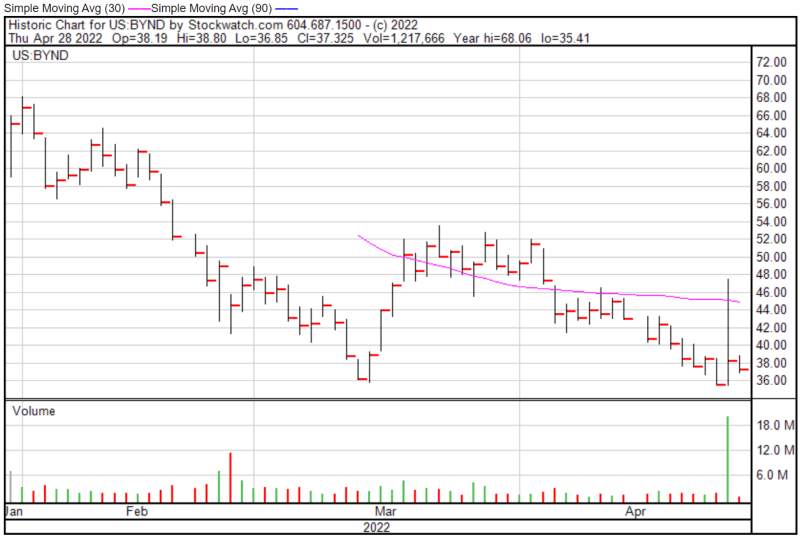
Beyond Meat’s share price opened at $37.76 on April 28, 2022, down from a previous close of $38.22. The Company’s shares were down -3.32% and were trading at $36.95 as of 11:28 AM EST.
NEXE Innovations Inc.
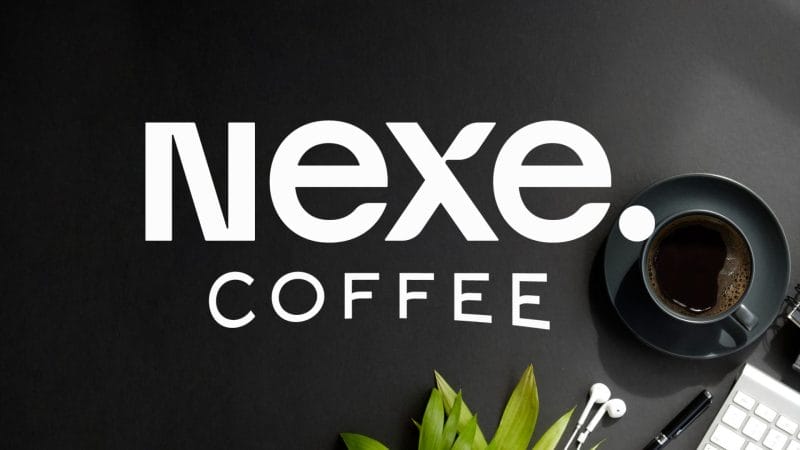
- $42.124M Market Capitalization (April 28, 2022)
NEXE Innovations Inc. (NEXE.V) is a leader in plant-based compostable technology and an advanced materials manufacturer based in British Columbia, Canada. NEXE has developed one of the only patented, fully-compostable, plant-based, single-serve coffee pods for use in leading single-serve coffee machines, including Keurig coffee makers. The Company’s proprietary pods are designed to reduce the significant environmental impact caused by single-serve pods.
With this in mind, NEXE has raised over $60 million from equity and government funding. Additionally, the Company has more than six years of R&D experience. As a result, the Company is well-positioned to capitalize on the lucrative Global Coffee Market, which was valued at USD$102.15 billion in 2019. This market is expected to reach a valuation of USD$155.64 billion by 2026, expanding at a compound annual growth rate (CAGR) of 6.2% between 2020 and 2026. If you’re looking for a closer look at NEXE, feel free to check out this article.
Latest News
As someone who is invested in NEXE, literally, I don’t write about them very often. However, it’s not because I don’t want to, it’s because I cant. The Company’s press releases are few and far between, with its latest press release from April 7, 2022. That’s not to say NEXE doesn’t have value. I wouldn’t have invested in the Company if I didn’t think it had potential. The Company’s market presence is simply…lacking. However, things may change soon as NEXE closes in on a retail launch.
Anyways, if coffee isn’t your thing, feel free to skip past this section. On April 7, 2022, NEXE announced that it has received an initial order of its XOMA Superfoods brand from Canada’s leading distributor of natural health products, Purity Life Health Products LP. For context, NEXE’s XOMA Superfoods brand consists of functional beverage products, all of which are compatible with Keurig single-serve machines.
“This order represents only the latest step in our ongoing sales strategy…Between our existing brick and mortar and online sales channels, and the market access that Purity gives us, we look forward to XOMA Superfoods becoming the product of choice for the health and environmentally-conscious consumer,” said Ash Guglani, President and Director of NEXE.
It is worth noting that Purity has been supplying Canada with natural healthy living products for almost 40 years. Furthermore, the company supplies over 7,000 stores, including major retailers such as Whole Foods, Loblaws, and Sobeys, via its distribution hubs in Western and Eastern Canada. With this in mind, Purity is the largest distributor of supplements and health & beauty products nationwide.
Ultimately, NEXE is making the necessary moves to dominate the single-serve coffee pod market, which was valued at USD$25.07 billion in 2020. However, with a mediocre presence, NEXE most likely won’t see any attention until it releases its sales revenue. Having received a purchase order from a retailer as large as Purity, I am hopeful for the Company’s sales performance, however, until then, all we can do is wait.
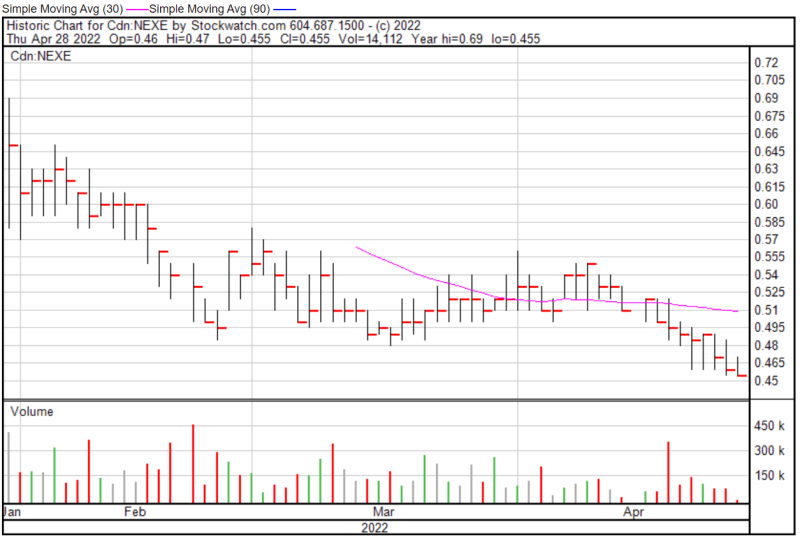
NEXE’s share price opened at $0.46 on April 28, 2022, compared to a previous close of $0.46. The Company’s shares were down -5.43% and were trading at $0.435 as of 12:13 PM EST.
Full Disclosure: the author of this article owns shares of NEXE Innovations Inc. (NEXE.V).
Plant & Co. Brands Ltd.
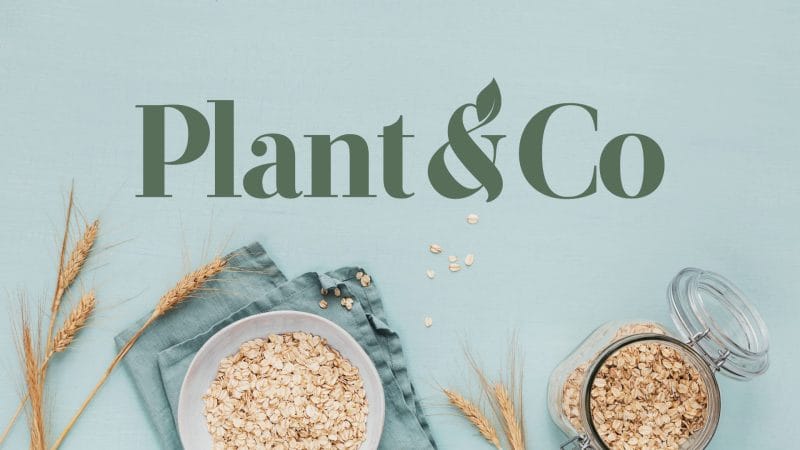
- $9.392M Market Capitalization (April 28, 2022)
Plant & Co. Brands Ltd. (VEGN.C) is a modern health and wellness company curating plant-based foods. The Company offers a number of plant-based products through its two leading plant-based brands, Holy Crap Foods Inc. and YamChops, the vegan butcher. Holy Crap Foods is committed to creating products that promote a healthy gut through simple, quality ingredients. Holy Crap Foods’ Holy Crap Cereal is an organic breakfast cereal intended to help maintain a healthy gut.
On the contrary, YamChops is a plant-based butcher shop based in Toronto, Ontario. YamChops offers a variety of plant-based meat alternatives including Tunaless “Tuna”, Chick’n Schnitzel, Szechuan “Beef”, and Montreal Style “Steak”. The Company announced on October 21, 2021, that a range of YamChops’ plant-based foods, dishes, and meals are now available through Hungerhub’s meal delivery application, Uncatering™.
Latest News
Earlier this month, on April 12, 2022, Plant & Co. announced an all-new plant-based product line for its wholly-owned subsidiary, Holy Crap Foods. The Company’s latest products include five snack-based oatmeal products, which will be sold under Plant & Co.’s Holy Crap Foods brand. The Company’s Holy Crap Oatmeal will be manufactured in its Canadian allergen-free facility. Furthermore, each oatmeal product is:
- gluten-free
- high in fiber
- non-GMO
- 100% vegan
- Kosher certified
Holy Crap Oatmeal will come in five different flavors, including Apple Cinnamon, Banana Coffee, Blueberry Cocoa, Mango Coconut, and Maple. Each bag contains 320 grams of oatmeal and serves 8 portions. For the time being, Holy Crap Oatmeal will be exclusively offered at www.holycrap.com for 60 days, however, retail distribution is planned for Q3 2022.
“We are continuing to execute on our company growth objectives and revenue-driven strategy quarter over quarter since releasing our growth plan in September 2021. We look forward to continuing to deliver increased value to our shareholders through organic and inorganic growth, and delivering delicious plant-based products to our customers,” said Shawn Moniz, CEO of Plant & Co.
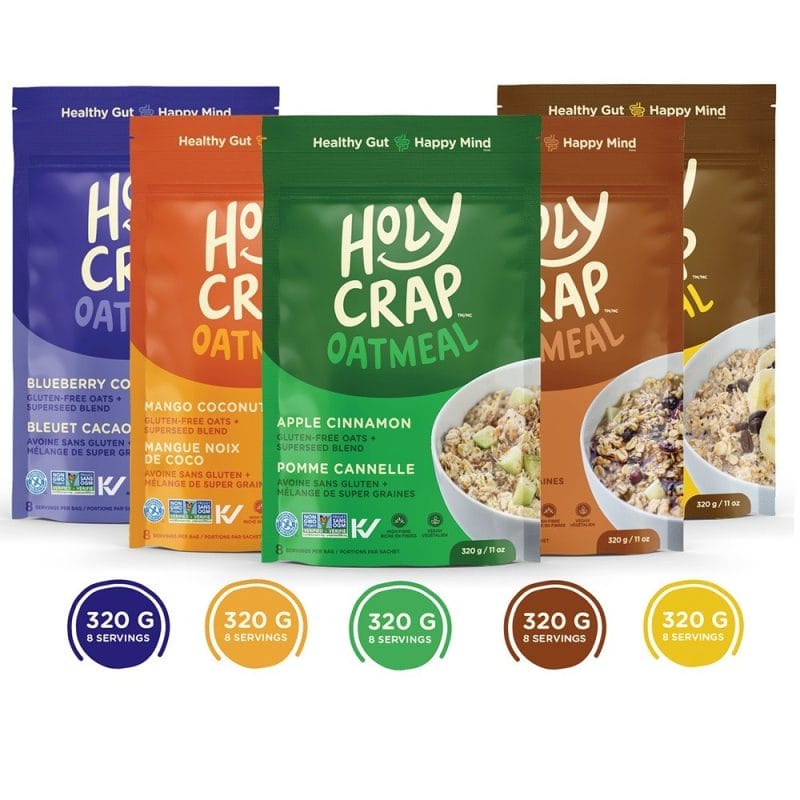
As a whole, the global snack food market is expected to reach USD$732.6 billion by 2026. In particular, the US snack food segment held a sizeable share of this market, reaching a value of USD$164.8 billion in 2021. With this in mind, the US constitutes the largest regional market, with growth primarily driven by an increasing preference for snacking, especially healthy snacks.
For example, the plant-based snacks market is forecasted to reach $59.4 billion by 2026, expanding at a compound annual growth rate (CAGR) of 9.4% between 2021 and 2026. Plant-based snacks are defined as those comprised of vegetables, fruits, and cereals. With this in mind, Holy Crap Oatmeal fits this bill to a tee. Overall, an increasing number of vegan consumers, a preference for convenience, and health concerns related to food are expected to fuel the growth of the plant-based snacks market.
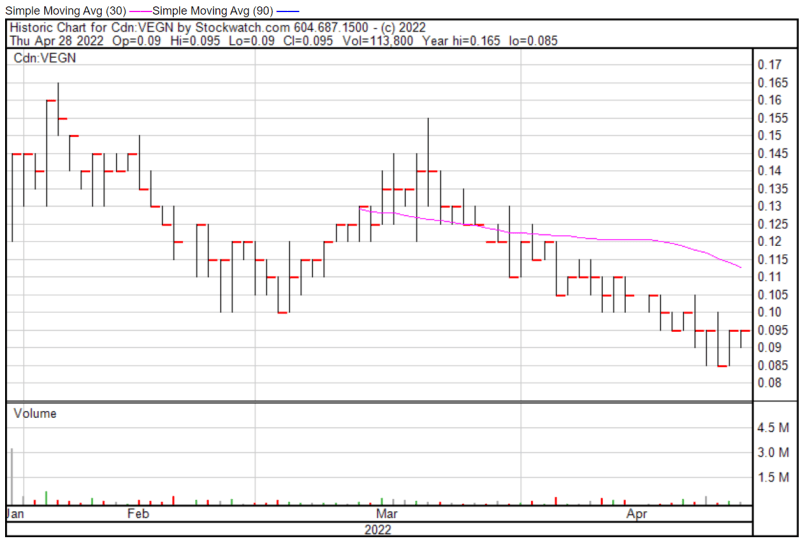
Plant & Co.’s share price opened at $0.090 on April 28, 2022, down from a previous close of $0.095. The Company’s shares were down -5.26% and were trading at $0.090 as of 12:16 PM EST.
Local Bounti Corporation
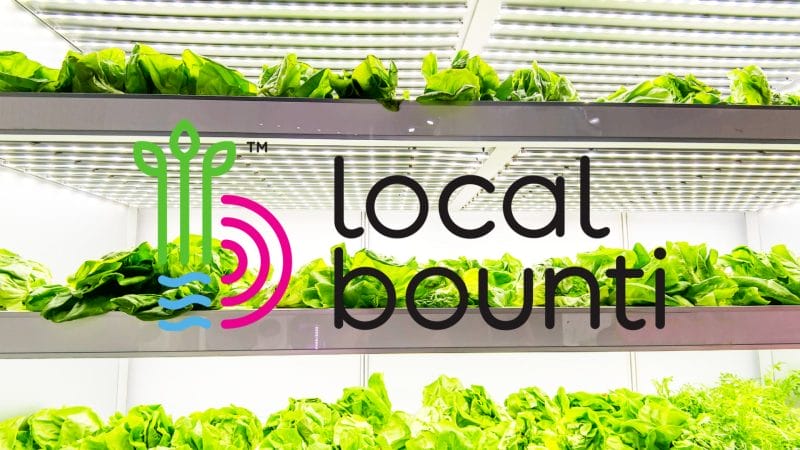
- $667.778M Market Capitalization (April 28, 2022)
Here’s a new one for you. Local Bounti Corporations (LOCL.NYSE) is a premier controlled environment agriculture (CEA) company redefining conventional efficiency and environmental, social, and governance (ESG) standards for indoor agriculture. The Company operates an advanced indoor growing facility in Hamilton, Montana, just a few hours away from its retail and foodservice partners. Sounds pretty convenient.
According to Local Bounti, the Company’s produce is “superior in taste and quality” compared to traditional field-grown greens. A bold claim indeed, however, the sustainability of the Company’s produce has me sold. Local Bounti enforces USDA Harmonized Good Agricultural Practices (GAP Plus+). Put simply, GAP Plus+ focuses on ensuring the use of best agricultural practices to verify that produce items are produced, packed, handled, and stored in the safest manner possible.
Furthermore, the Company’s non-genetically modified organisms (GMO) produce is sustainably grown 365 days a year using Local Bounti’s proprietary technology. Just how sustainable? Local Bounti claims that its technology uses 90% less land and 90% less water than conventional farming methods.
Latest News
On April 28, 2022, Local Bounti announced the issuance of its full-year 2021 Corporate Sustainability Report. The report itself follows standards set forth in the Global Reporting Initiative (GRI) and Sustainability Accounting Standards Board (SASB). Furthermore, the report aligns with the United Nations Sustainability Development Goals (UN SDG) and contains firm ESG commitments. In other words, Local Bounti’s report was very sustainable.
“Being the CEA sustainability leader is undoubtedly a challenge, yet one the entire Local Bounti team is excited to deliver upon. As part of our sustainability commitment, we are committed to transparency and are pleased to share this report with our stakeholders to provide an in-depth view of our sustainability initiatives and performance,” said Craig Hurlbert, Co-Founder and Co-Chief Executive Officer of Local Bounti.
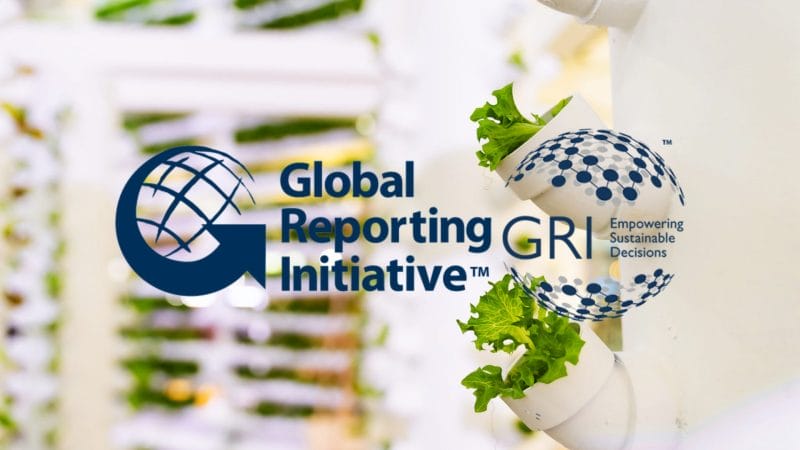
To provide some context related to Mr. Hurlbert’s commentary, CEA refers to controlled environmental agriculture. CEA is defined as a combination of engineering, plant science, and computer-managed greenhouse control technologies used to optimize plant growing systems, plant quality, and production efficiency. With this in mind, Local Bounti became one of the first US-based CEA companies to participate in the United Nations Global Compact Initiative in September 2021.
Referring back to Local Bounti’s report, the Company outlined various commitments including:
- investing in and supporting Local Bounti employees by paying a living wage while providing full time, non-seasonal jobs with benefits
- producing greenhouse gas (GHG)-neutral produce by 2030
- investing in underserved communities by spending more than $50 million in facilities located in Federal Opportunity Zones
- reporting transparency using GRI and SASB international frameworks, including full Scope 1 and 2 GHG values and actual water usage
If Local Bounti sounds interesting to you, the Company announced on April 25, 2022, that it will release its financial results for the first quarter ended March 31, 2022, after the markets close on May 9, 2022, at 5:00 PM EST. The Company will host a conference call and webcast with members of Local Bounti’s executive management team to discuss the results and other business updates.
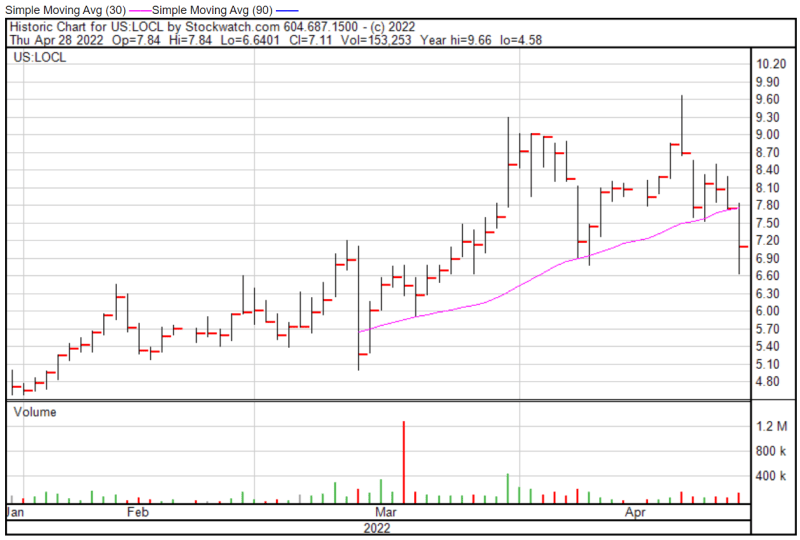
Local Bounti’s share price opened at $7.82 on April 28, 2022, up from a previous close of $7.75. The Company’s shares were down -8.39% and were trading at $7.10 at market close.
DISCLAIMER: This article was originally written on April 28, 2022.

